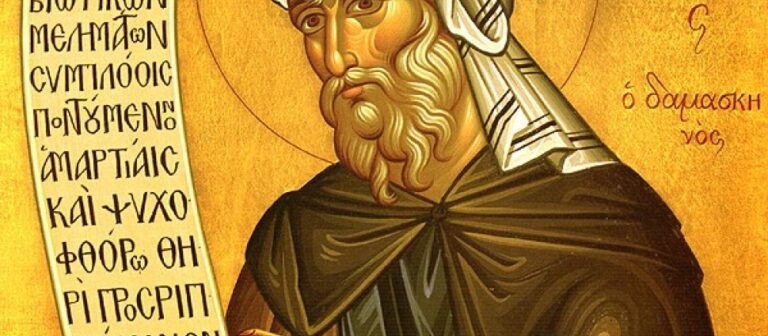
Justification and Imputation
On October 31, 2017, many Christians celebrated the 500th anniversary of the Protestant Reformation. My church held a service where several pastors spoke on the theological importance of this historical event, namely the recovery of the doctrine of justification by faith alone through grace alone in Christ alone for God’s glory alone. This indeed is a wonderful truth that is the ground of the gospel. What then is the ground of justification? The doctrine of imputation.
Apart from God’s intervention, Romans 3:23 is true for every man, woman, and child. We have fallen short of the glory of God, and we have fallen in two respects. We are guilty of breaking the law, which is a capital offense. (Gen. 2:16-17) God cannot sweep our sin under the rug and maintain His holiness. Therefore, sin must be punished. (Ps. 5:4-6, Heb. 10:26-31) We are also guilty of not keeping the law. (Deut. 5:29-33) God our Creator rightfully demands perfect obedience, but our best efforts are filthy rags. (Is. 64:6) Therefore, these two mammoth obstacles must be dealt with in order for us to be made right before God. This is where imputation steps in. Derived from the Greek word logizomai, it means “to charge” or “to reckon” and is the means whereby God can be just and the justifier of those who have faith in Jesus. (Rom. 3:23-26)
In regard to sin, God takes the debt we owed because of our sin and charged it to the Christ’s account. He died the death and bore the wrath of God that we deserved. (Rom. 5:6-11) This is the imputation of Christ’s passive obedience in which he freely submitted to the Father by becoming the atoning sacrifice for our sins. But is that the only thing he accomplished? If so, Jesus did not need to be born as a baby and live for 33 years. He could have appeared as an adult and gone immediately to the cross. In doing so, the negative penalty for our sins would have been satisfied, but the problem of our unrighteousness remains. Then is our salvation partial where our sin-debt is paid, but we must meet God’s righteous standard on our own? Absolutely not! The righteousness we lacked and so desperately need has been granted to us as well. Just as our sin was credited to our Savior, his righteousness has been credited to our account. From his birth to his death, he was tempted in all things as we are, yet without sin. (Heb. 4:14-16) We failed. He did not. We disobeyed. He perfectly obeyed the Father. Thus we are declared righteous based on his merits alone by the imputation of his active obedience. ( Rom. 5:12-21)
Imputation gives us hope when the accuser of the brethren would dredge up the sins of the past. We can point to Christ’s death on the cross and say “My sin – not in part but the whole, is nailed to the cross and I bear it no more, praise the Lord, praise the Lord, oh my soul!”
Imputation gives no ground for self-righteousness. When we are tempted to earn even the smallest bit of our standing before God, this doctrine silences that voice. We have already been saved by works, but those works are not our own. We are saved by the perfect work of Jesus Christ. Fully and completely. Nothing can be added and nothing can be taken away.
Some may worry that this doctrine leads to complacency and using the grace of God as a license to sin. But rather, as Louis Berkhof writes, “The man who is justified also receives the spirit of sanctification, and is the only one who can abound in good works which will glorify God.” And as the Holy Spirit continues to open our eyes to our inability to save and keep ourselves and what God has done through Christ alone, we will respond in worship.
“Say that, child of God! Does yesterday’s sin make you stammer? In the teeth of all your sins believe that He is your righteousness still. Your good works do not improve His righteousness. Your bad works do not sully it. This is a robe which your best deeds cannot mend and your worst deeds cannot mar. You stand in Him, not in yourself. Whatever, then, your doubts and fears may have been, do now, poor troubled, distressed, distracted Believer, say again, “Yes, He is THE LORD OUR RIGHTEOUSNESS.” Charles Haddon Spurgeon
References:
Jehovah Tsidkenu: The Lord, Our Righteousness, C.H. Spurgeon, Sermon No. 395, June 2, 1861.
The Son Who Learned Obedience, D. Glenn Butner, Jr., Pickwick Publications, 2018, pgs. 95-107.
Systematic Theology, Louis Berkhof, Wm. B. Eerdmans Publishing Co., 1993, pgs. 523-524.
What is Reformed Theology? Lecture 6: Covenant, R.C. Sproul, Ligonier Ministries.
Persis Lorenti is member of Grace Baptist Chapel in Hampton, VA where she serves as bookkeeper and deacon of library/resources. She blogs at Persistent Thoughts and Tried With Fire. You can follow her on Twitter @tea_et_books.
























